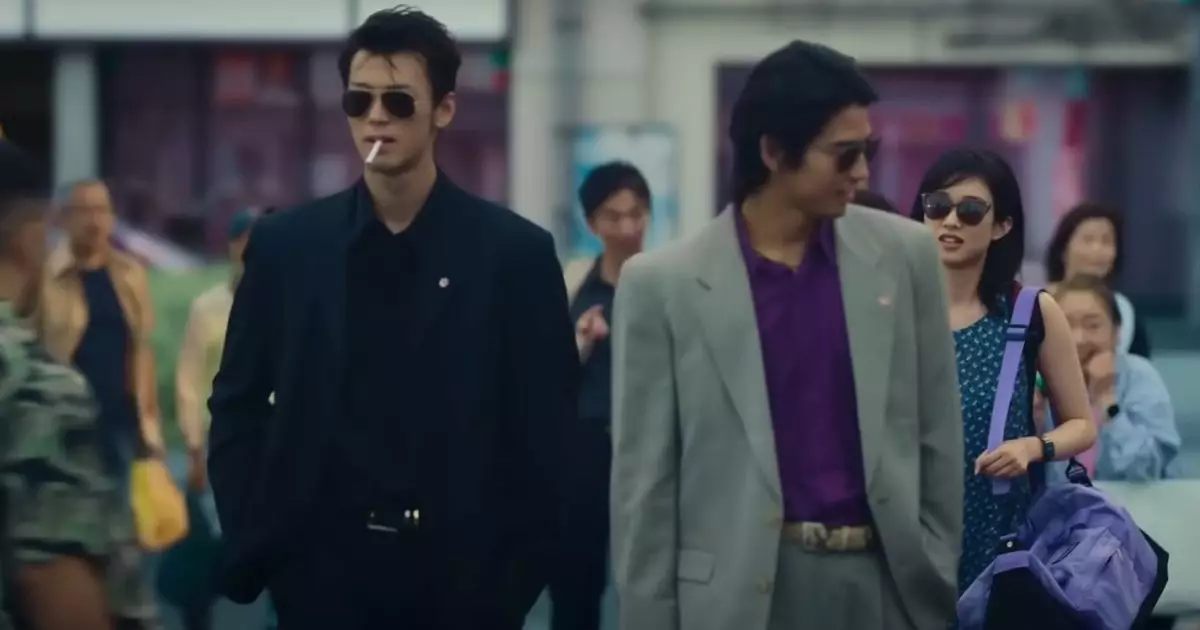With the rise of video game adaptations in mainstream media, it seems almost inevitable that one of the most revered franchises, Yakuza, would receive its turn in the limelight. The newly released trailer for the Amazon Prime series titled “Like A Dragon: Yakuza” has generated buzz across fan communities and critique circles alike, sparking conversations about the potential directions this adaptation might take. While enthusiasm abounds, the sentiments are mixed—an undercurrent of skepticism runs through the excitement. As one deeply entrenched in the Yakuza universe, I find myself wrestling with cautious optimism; the trailers hint at a narrative that deviates from the source material in both tone and storytelling.
From Goofy to Gritty: A Dramatic Shift
One of the most striking aspects of the trailer is its serious tone. The Yakuza games are well-known for their blend of absurd humor and brutal combat, featuring bizarre side quests and larger-than-life characters. By contrast, the series appears to favor a more grounded approach, leaning toward grim storytelling that circumvents the franchise’s quirky charm. While it may be tempting to view this shift as a dilution of the essence that has made Yakuza a favorite amongst gamers, it might also signify an attempt to appeal to a wider audience that seeks authentic drama rather than comedic escapism.
The trailer opens with a haunting image of a young Kiryu witnessing a Yakuza’s violent prowess in an arena, setting the stage for a narrative that emphasizes the brutal realities of life in the criminal underworld. Yet, the lack of recognizable and outrageous elements—such as comically named characters or ludicrous challenges—begs the question of whether this will resonate with fans who cherish Yakuza’s eccentric charm.
Amazon has provided an outline of the show’s plot, which suggests a dual timeline: one focusing on a youthful Kiryu attempting a heist at a Dojima-controlled arcade, and another with Kiryu emerging from a decade-long imprisonment to confront newfound dangers. This narrative structure opens avenues for exploring complex character dynamics, particularly the evolving relationships among Kiryu and his companions, Nishiki, Yumi, and Miho.
The challenge lies in the execution. The peril of establishing a strong emotional core is that the narrative risks alienating long-time fans if it strays too far from the subject matter that made the games compelling. The games thrive on themes of brotherhood, loyalty, and sacrifice drenched in humanism, offering players both outlandish gameplay and poignant storytelling. How the series tackles these motifs within a grittier framework will be critical to its success.
Character-centric stories are a hallmark of Yakuza, often epitomized by the series’ keen insight into human vulnerabilities and complexities. The trailer hints at the groundwork for emotional depth, but whether it can deliver remains uncertain. Audiences crave connection, and perhaps the true test for the show’s creators will be how they navigate relationships within the Yakuza clan itself.
Will the show give us moments of reflection—like the poignant encounters with secondary characters that define the Yakuza experience? Consider a storyline about helping those embroiled in the chaos of Kamurocho. While the trailer has not showcased any such encounters yet, one can hope that the writing team aims to weave in these humanizing elements.
Predicting the Finale: Cycles of Violence and Redemption
As the narrative arcs converge, there’s expectation surrounding Kiryu’s ultimate confrontation with his past. The cycle of violence and redemption is a rampant theme throughout the games, climaxing in epic showdowns and moral dilemmas. The mention of Kiryu navigating a familiar urban battlefield, rising against hordes of thugs, hints at a dramatic conclusion that may stay true to the essence of the franchise—barring the comedic instances that are its hallmark.
While I dare not disclose the details of the anticipated ending, hints of tragedy and cyclical nature are ever-present; a protagonist shaped by his trials, who ultimately must grapple with the ghosts of decisions made in a life of crime. There lies an incredible opportunity to illustrate profound themes of regret, sacrifice, and the quest for redemption—a true reflection of the Yakuza spirit.
As the release of “Like A Dragon: Yakuza” approaches, fans are left with a mix of hope and skepticism. While it strays from the beloved traits of the games, it may ultimately find its own identity that resonates with both die-hard fans and newcomers to the Yakuza saga. The balance between seriousness and the heart of the franchise may be the key to unlocking its potential.

